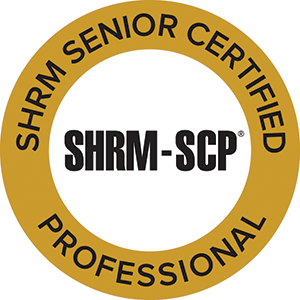 A new law recently signed by Gov. Jerry Brown will prohibit employers in California from including criminal history inquiries on employment applications before making a conditional offer of employment. AB 1008 applies to all California employers with 5 or more employees and will go into effect January 1. California has had a “ban the box” law for city, county and state employers since 2014. The new law extends the ban to private sector employers. Fifteen local jurisdictions, including San Francisco and Los Angeles, already have such private sector bans in place.
A new law recently signed by Gov. Jerry Brown will prohibit employers in California from including criminal history inquiries on employment applications before making a conditional offer of employment. AB 1008 applies to all California employers with 5 or more employees and will go into effect January 1. California has had a “ban the box” law for city, county and state employers since 2014. The new law extends the ban to private sector employers. Fifteen local jurisdictions, including San Francisco and Los Angeles, already have such private sector bans in place.
The goal is to give Californians with a prior arrest or conviction a fair chance at finding a job and moving forward.
AB 1008 makes it unlawful for employers to:
- Include questions on employment applications about criminal history
- Ask about or consider the conviction history of an applicant before the applicant receives a conditional offer of employment; and
- Consider, distribute, or disseminate information about arrests that did not result in a conviction.
The bill also requires that, before rejecting an applicant based on criminal history, the employer must first make an “individual assessment” to determine whether the applicant’s conviction history has a direct and adverse relationship with the specific duties of the job. The employer must consider each of the following:
- The nature and gravity of the offense or conduct;
- The time that has passed since the offense or conduct and completion of the sentence; and
- The nature of the job held or sought.
If the employer makes a preliminary decision not to hire the applicant in part or solely due their criminal history, they must notify the applicant in writing and give them at least 5 business days to respond. If the applicant notifies the employer in a timely manner that they dispute the accuracy of the conviction history, and are taking steps to obtain evidence to prove its inaccuracy, the employer must provide the applicant 5 additional business days to respond. By law, the employer must consider the applicant’s response before making a final decision.
From a business perspective, banning “the box” can expand the pool of potential employees in what is a very competitive market. Individuals with arrest records or convictions for even minor offenses often have difficulty getting that first opportunity to begin turning their life around. A former client of mine who gave someone that opportunity had a very positive experience. Through a program with the EDD, she hired someone who had served time for a minor offense to work in the company call center. The individual was anxious to get some experience, and to be able to support their family. The program had very specific requirements that the employee had to adhere to, e.g., weekly drug testing, and attending meetings with their parole officer. It turned out to be a win-win. The employer got a motivated employee, and the employee got a fresh start.
Remember that in light of the new law, AB 1008, you may need to make changes to your employment application form and hiring procedures. Please contact me if you need help in doing so.


 As of July 1, the minimum wage has increased in a number of California cities. If you have employees in any of the following cities, be sure that you have changed their pay rates accordingly. Note that in some cities, the minimum hourly wage is based on the number of employees. Also, if an employee works in (or telecommutes from) a city with a higher minimum wage than the state, the employer must follow both the state wage requirements and the city’s wage requirements for that employee. The current minimum wage in the state of California is $10.50/hour for employers with 26 or more employees, and $10/hour for employers with 25 or fewer employees.
As of July 1, the minimum wage has increased in a number of California cities. If you have employees in any of the following cities, be sure that you have changed their pay rates accordingly. Note that in some cities, the minimum hourly wage is based on the number of employees. Also, if an employee works in (or telecommutes from) a city with a higher minimum wage than the state, the employer must follow both the state wage requirements and the city’s wage requirements for that employee. The current minimum wage in the state of California is $10.50/hour for employers with 26 or more employees, and $10/hour for employers with 25 or fewer employees. You only have to glance at the news to get the feeling that workplace bullying and harassment are on the rise. Bill O’Reilly was called out recently for his behavior toward women at Fox News, as Roger Ailes had been accused before him. As of a few days ago, more than 50 companies had pulled their advertising dollars from The O’Reilly Factor.
You only have to glance at the news to get the feeling that workplace bullying and harassment are on the rise. Bill O’Reilly was called out recently for his behavior toward women at Fox News, as Roger Ailes had been accused before him. As of a few days ago, more than 50 companies had pulled their advertising dollars from The O’Reilly Factor. As we head into the home stretch for 2016, it’s important to know about new employment-related requirements that will go into effect next year. Here’s a summary of those requirements. As always, we will keep you updated about any changes or additions.
As we head into the home stretch for 2016, it’s important to know about new employment-related requirements that will go into effect next year. Here’s a summary of those requirements. As always, we will keep you updated about any changes or additions. The Affordable Care Act’s individual mandate provision requires every individual to have minimum essential health coverage for each month, qualify for an exemption, or make a penalty payment when filing his or her federal income tax return. Recently, the Internal Revenue Service (IRS) issued
The Affordable Care Act’s individual mandate provision requires every individual to have minimum essential health coverage for each month, qualify for an exemption, or make a penalty payment when filing his or her federal income tax return. Recently, the Internal Revenue Service (IRS) issued  Whitaker Financial Services has been providing professional financial and insurance services for over 25 years. At WFS, it’s our business to help you plan ahead. The most important point we make with clients is this: strategy is everything. We offer business owners an alternative to the impersonal treatment they receive from the large brokerage agencies. The benefits programs you invest in affect multiple facets of your business, from company morale, to employee retention, to administrative efficiency, to your bottom line.
Whitaker Financial Services has been providing professional financial and insurance services for over 25 years. At WFS, it’s our business to help you plan ahead. The most important point we make with clients is this: strategy is everything. We offer business owners an alternative to the impersonal treatment they receive from the large brokerage agencies. The benefits programs you invest in affect multiple facets of your business, from company morale, to employee retention, to administrative efficiency, to your bottom line. If you have employees in San Francisco, you should be aware of the new San Francisco Paid Parental Leave law, and amendments to the city’s paid sick leave law, both of which will go into effect next year.
If you have employees in San Francisco, you should be aware of the new San Francisco Paid Parental Leave law, and amendments to the city’s paid sick leave law, both of which will go into effect next year. In my last blog I talked about the change in the minimum salary requirement for exempt employees that goes into effect in December. Here are some other HR-related legal updates that may also affect you.
In my last blog I talked about the change in the minimum salary requirement for exempt employees that goes into effect in December. Here are some other HR-related legal updates that may also affect you. The Department of Labor has announced new federal regulations increasing the minimum salary that must be paid to qualify an employee as exempt from overtime. As of December 1, 2016, an exempt employee must be paid a minimum of $913 per week, or $47,476 annually.
The Department of Labor has announced new federal regulations increasing the minimum salary that must be paid to qualify an employee as exempt from overtime. As of December 1, 2016, an exempt employee must be paid a minimum of $913 per week, or $47,476 annually.


